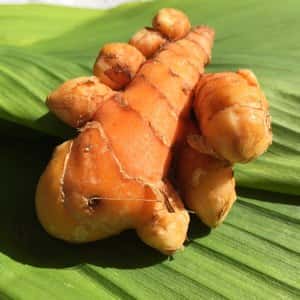
Turmeric and its most active ingredient curcumin have gotten plenty of attention for their anti-inflammatory properties. We have heard from readers that this yellow spice used in curry powder and mustard can help alleviate arthritis pain. Research confirms this benefit. You may enjoy these testimonials about taking turmeric or curcumin for arthritis, as well as a cautionary note.
Are There Problems with Curcumin for Arthritis?
Q. A while back, you responded to a reader’s question about taking turmeric for arthritis. I have been taking turmeric for years. It helps limit knee pain and maintain good CRP levels.
You should be aware of one heads-up, though. Turmeric can cause a false positive fecal occult test result. I generally stop taking it about three days before I go to the doctor to avoid that.
A. Turmeric and its active component, curcumin, have been shown to help ease arthritic knee pain (BMJ Open Sport & Exercise Medicine, Jan. 13, 2021). CRP is an abbreviation for C-reactive protein, a marker of inflammation. A review of randomized controlled trials concluded that curcumin has a significant effect on CRP (Phytotherapy Research, Oct. 31, 2024). This reinforces the idea that turmeric reduces inflammation.
We’re not so sure that your positive result on a fecal occult blood test is false. Turmeric has some anticoagulant activity and could lead to unwanted bleeding. Generally, we urge people on an anticoagulant such as warfarin to avoid both turmeric and curcumin. Please discuss your use of this supplement with your health care provider.
Turmeric Eased Knee Pain due to Arthritis:
Q. I tried gin and raisins for a while and did not see much improvement in my arthritic knee. I had been getting cortisone shots about twice a year.
Then I tried turmeric and was impressed with the difference! I’ve had no shots for over two years now, and no knee pain.
I submit that this effect is life saving, in some sense, since it allows good exercise like walking that has many health benefits.
A. People with arthritis respond in very different ways to medications as well as home remedies or herbs. Some get impressive relief from NSAIDs (nonsteroidal anti-inflammatory drugs) like ibuprofen or naproxen. Others complain of serious side effects.
Many people report that gin-soaked raisins help their joint pain, while others, like you, get no benefit.
Turmeric has anti-inflammatory activity. A systematic review of 10 randomized controlled trials found that turmeric can help relieve knee pain due to osteoarthritis (BMJ Open Sport & Exercise Medicine, Jan. 13, 2021). It also improved function. As you point out, that is critically important for maintaining good health.
There were no important side effects reported from these studies. We should note, however, that some people develop allergic reactions to either turmeric or curcumin. Those taking anticoagulants such as warfarin should probably avoid this spice, as some individuals have reported elevated INR. The International Normalized Ratio helps evaluate the risk of bleeding, and a higher number indicates a greater risk.
Another reader offered the following experience.
“After reading about turmeric in your column, I started using one teaspoon in my scrambled eggs each morning. My arthritis has greatly improved, and I have far less pain when I walk. I work in my yard every few weeks, weeding, hoeing, mowing and pruning. Usually I am sore for days rtfter this work. But this last time, since I started taking turmeric, I had no soreness the next day.”
Investigators are also studying the potential role of curcumin against cancer, Alzheimer disease, psoriasis and cystic fibrosis. Putting turmeric powder in food could be a good way to get curcumin for arthritis. One woman told us that she takes turmeric pills instead and they relieved her arthritis pain. When she stopped temporarily, the pain returned. She resumed taking turmeric pills and the pain disappeared.
Turmeric in Scrambled Eggs:
Q. After reading about turmeric in your column, I started using one teaspoon in my scrambled eggs each morning. My arthritis has greatly improved, and I have far less pain when I walk.
I work in my yard every few weeks, weeding, hoeing, mowing and pruning. Usually I am sore for days after this work. But this last time, since I started taking turmeric, I had no soreness the next day.
My doctor is quite skeptical. He has suggested that I would feel just as good without the turmeric. What do you think?
A. Turmeric is the yellow spice in mustard and curry. The active ingredient in turmeric is curcumin. If your physician searched PubMed, he would find over a thousand research publications in the National Medical Library.
There is active research into curcumin’s anti-inflammatory and anti-oxidant activity. Investigators are studying a potential role against cancer, Alzheimer’s disease, psoriasis and cystic fibrosis.
If you like the flavor, we don’t see anything wrong with putting turmeric powder in scrambled eggs to get the benefits of curcumin for arthritis. Do pay attention to the possibilities of bleeding, allergies or liver trouble.
Learn More:
You can learn more about turmeric (including the potential for side effects) in our book, Spice Up Your Health: How Everyday Kitchen Herbs & Spices Can Lengthen & Strengthen Your Life. In addition, we discuss this anti-inflammatory agent and many other natural approaches in our eGuide to Alternatives for Arthritis.
Citations
- Paultre K et al, "Therapeutic effects of turmeric or curcumin extract on pain and function for individuals with knee osteoarthritis: a systematic review." BMJ Open Sport & Exercise Medicine, Jan. 13, 2021. DOI: 10.1136/bmjsem-2020-000935
- Jafari A et al, "Curcumin on Human Health: A Comprehensive Systematic Review and Meta-Analysis of 103 Randomized Controlled Trials." Phytotherapy Research, Oct. 31, 2024. DOI: 10.1002/ptr.8340

